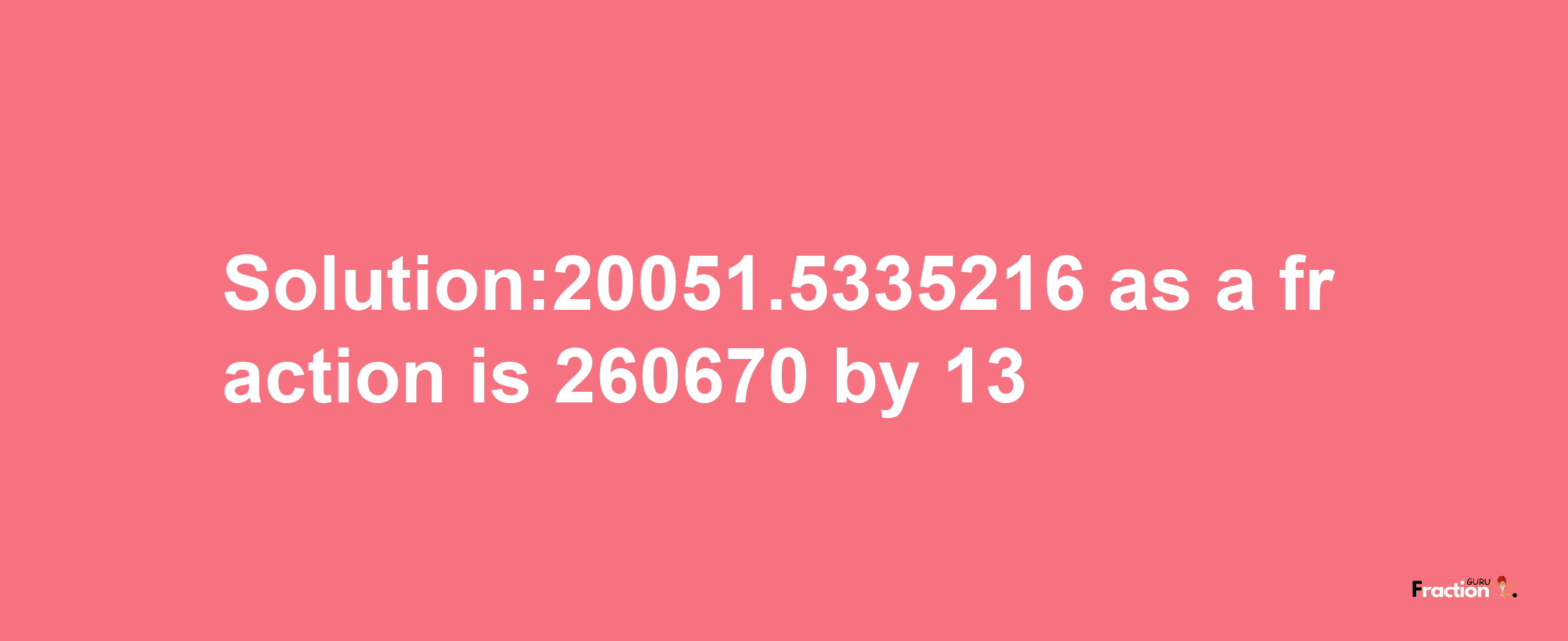Step 1:
The first step to converting 20051.5335216 to a fraction is to re-write 20051.5335216 in the form p/q where p and q are both positive integers. To start with, 20051.5335216 can be written as simply 20051.5335216/1 to technically be written as a fraction.
Step 2:
Next, we will count the number of fractional digits after the decimal point in 20051.5335216, which in this case is 7. For however many digits after the decimal point there are, we will multiply the numerator and denominator of 20051.5335216/1 each by 10 to the power of that many digits. So, in this case, we will multiply the numerator and denominator of 20051.5335216/1 each by 10000000:
Step 3:
Now the last step is to simplify the fraction (if possible) by finding similar factors and cancelling them out, which leads to the following answer for 20051.5335216 as a fraction:
260670/13 / 1


